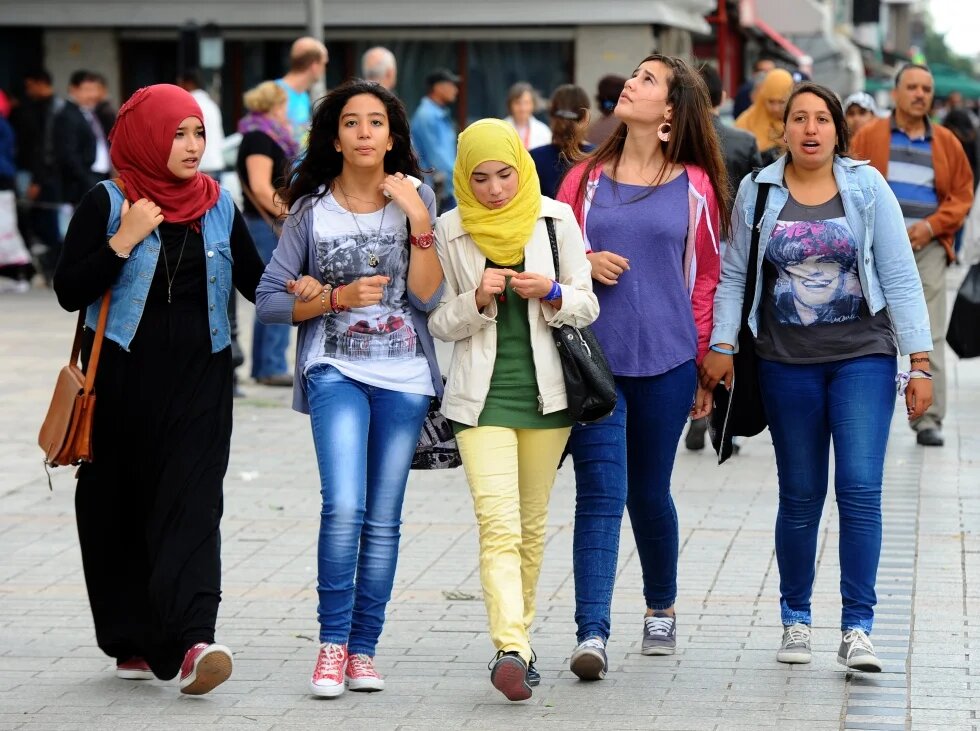
At the core of Tunisian behavior lies a strong emphasis on family, community, and respect. Tunisians typically prioritize relationships over individualism, and social harmony is highly valued.
Family-Centric Culture:
The family is the fundamental social unit. Extended families often maintain close ties, and elders are respected and consulted on important matters. Family gatherings and celebrations are common and play a vital role in social life.
Hospitality:
Tunisians are famously hospitable. Visitors are often warmly welcomed with tea, sweets, or a full meal. Hospitality is seen as a reflection of generosity and honor.
Religion and Tradition:
Islam is the predominant religion and influences many daily behaviors and societal norms. However, Tunisia is also known for its relatively secular and tolerant attitude compared to some neighboring countries.
Tunisians communicate in a friendly, expressive, and indirect manner that reflects their cultural values:
Politeness and Formality:
Addressing people with titles such as “Sidi” (Sir) or “Lalla” (Madam) shows respect, especially towards elders or strangers.
Indirect Communication:
Tunisians often avoid direct refusals or confrontations to maintain harmony. A “maybe” or vague answer might mean “no,” but said politely.
Non-Verbal Cues:
Facial expressions, gestures, and tone of voice play an important role. For example, maintaining eye contact shows sincerity, but staring can be seen as rude.
Use of Humor:
Humor is widely appreciated and used to ease tension or build rapport.
Greetings:
Handshakes are common, but in more traditional or rural areas, men and women might avoid physical contact with the opposite sex. Close friends or family may greet with kisses on the cheeks (usually three).
Respect for Elders:
Elders are greeted first and given priority in social settings. Listening attentively to their advice and stories is expected.
Dress Code:
While urban areas are relatively liberal, modest dressing is preferred, especially for women. In rural areas, conservative attire is the norm.
Gift Giving:
When visiting a Tunisian home, bringing sweets, pastries, or small gifts is appreciated and seen as a gesture of goodwill.
Punctuality:
Time is often viewed more flexibly than in Western cultures. Arriving a bit late to social events is common and usually acceptable.
Public Behavior:
Public displays of affection are generally frowned upon, especially in rural areas. Loud arguments or disrespectful behavior in public are also avoided.
Gender Roles:
While Tunisia is progressive in terms of women’s rights compared to some neighbors, traditional gender roles can still influence behavior, especially in family settings.
Dining Etiquette:
Sharing meals is common, and eating with the right hand is customary. Refusing food or drink can be seen as impolite unless there is a good reason.
Building Relationships:
Business in Tunisia is relationship-driven. Establishing trust and getting to know your counterpart personally often precedes formal agreements.
Meetings and Negotiations:
Meetings might start with small talk about family and health before moving to business. Patience and politeness are crucial.
Decision Making:
Decisions may take time as consensus and approval from senior figures are often required.
Dress and Presentation:
Business attire is formal and conservative. Showing respect through appropriate dress is important.
Hospitality is woven into Tunisian behavior at every level:
Guests are often offered mint tea, a symbol of friendship and welcome.
Sharing food, even if limited, is considered generous and obligatory.
Invitations to homes are common, and refusing without a strong reason can be perceived as rude.
Modernization, globalization, and social media are influencing Tunisian behavior, especially among youth and urban populations:
Youth Culture:
Young Tunisians may blend traditional values with more liberal and global perspectives. This creates a dynamic social environment balancing old and new.
Social Movements:
Tunisia’s vibrant civil society and recent political changes encourage more open discussion and evolving social norms.
Tunisian behavior is a fascinating mix of warmth, respect, tradition, and evolving modernity. By understanding these cultural nuances, visitors and professionals alike can foster meaningful connections and navigate Tunisia’s rich social fabric with confidence and respect.